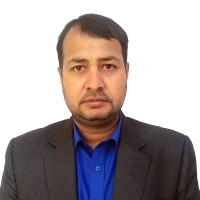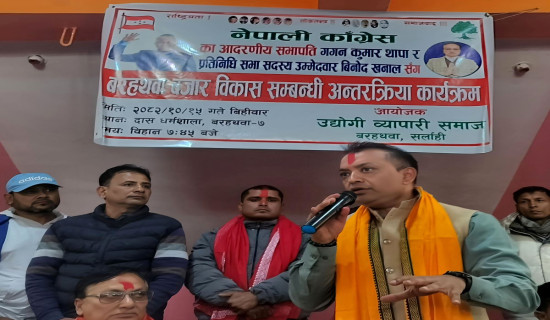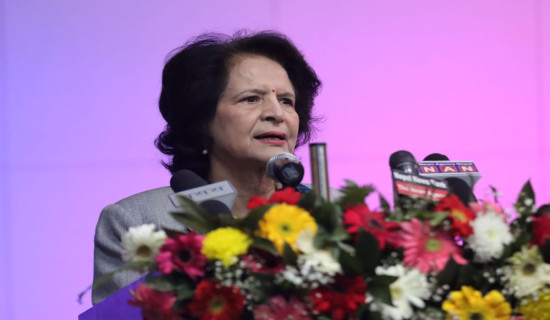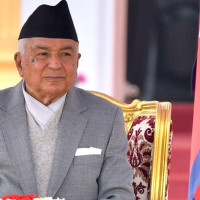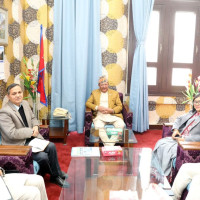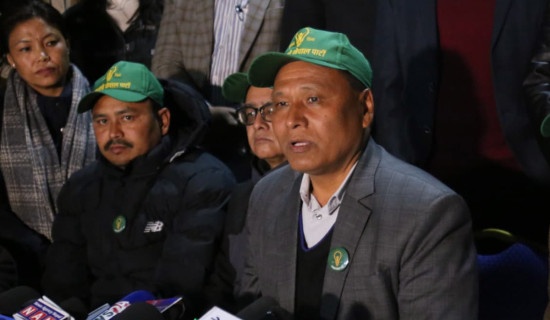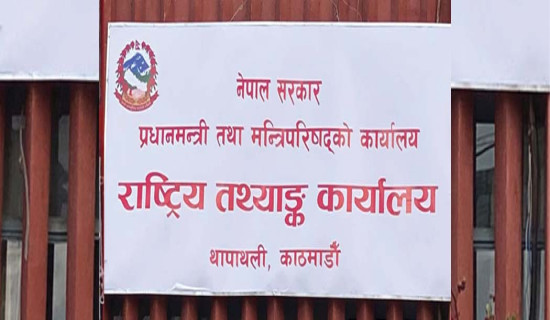- Friday, 30 January 2026
World Bank’s IDA meeting kicks off in Kathmandu
Kathmandu, June 19:The 21st replenishment meeting of the International Development Association (IDA) under the World Bank Group kicked off in Kathmandu, Nepal from Tuesday.
This is the biggest event of the World Bank hosted in Nepal, a country renowned for its natural beauty with enormous development potential and resilience.
Prime Minister Pushpa Kamal Dahal ‘Prachanda’ inaugurated the four-day Third IDA 21 replenishment meeting amidst a grand ceremony.
The International Development Association (IDA) is the part of the World Bank that helps the world’s low-income countries. The IDA, which provides grants and zero- to low-interest loans, has helped transform millions of lives and communities since its inception in1960.
The theme for IDA21 is ending poverty on a livable planet: Delivering impact with urgency and ambition. To fulfill this, the IDA21 policy package will have five focus areas of people, planet, prosperity, infrastructure and digitalisation, supported by four lenses of gender, jobs, fragility, conflict and violence, and private investments.
Replenishing IDA’s resources will be a key topic of the meeting, which comes at the midpoint of a replenishment cycle concluding in December 2024—when donors commit to contributions for the cycle that runs from July 2025 to June 2028.
The IDA has been providing assistance to more than 75 low- and middle-income countries. The IDA meeting is held in every three years.
Inaugurating the meeting, Prime Minister Prachanda has urged to address the challenges seen in the development of countries that were lagging behind during the industrial revolution in order to ensure global peace and common prosperity.
Prime Minister Prachanda requested the IDA to advance the pace of development by providing concessional financial support to the countries facing development challenges.
“In contrast, mainly Least Developed Countries were left behind largely due to inadequate infrastructure, limited access to capital and technology, and political instability. These factors delayed their industrialisation, technological advancement and economic prosperity,” he said.
“By fostering collaboration and providing equitable access to resources, technology, and investment, we can address historical disparities and promote inclusive growth. Strengthening international partnerships, enhancing capacity-building, and supporting sustainable development initiatives in those countries will not only uplift these nations but also contribute to global stability and economic resilience,” he said.
Stating that despite the integrated efforts made for inclusive economic development, there is an obligation to face revenue limitations, trade deficits and increasing debt obligations, Prime Minister Prachanda said that substantial financial resources for sustainable development goals (SDGs), Nationally Determined Contributions (NDCs) and infrastructure development are insufficient.
He said that concessional assistance was also necessary to create additional employment opportunities, accelerate economic activities and graduate from least developed status in 2026.
“Our priority must be investing in human capital, particularly in health and education, as well as developing quality and resilient infrastructure and transforming lives of our people. Emphasising digitalization, investment in productive sectors, fostering entrepreneurship, and enhancing skill development are essential to creating jobs, promoting inclusivity and accelerating growth,” said the Prime Minister.
“Together, our utmost responsibilities are towards climate action, responding to fragility, supporting small states, and ensuring water and food security,” he said.
Expressing his belief that the IDA21 replenishment meeting will succeed in building a strong consensus among donors and borrowers on the policy priorities and result framework for the next three years, Prime Minister Prachanda said, “We will agree on the necessity of record-high pledging to address the unprecedented crises of our time and to witness the vast impact of IDA in recipient countries, including Nepal, and to the importance of these resources to help us realize our full potential.”
Risk of reversal of hard-won development gains
Prime Minister Prachanda said that the effects of climate change had further increased the sensitivity and said that there was a risk of reversal of the gains of development achieved with difficulty.
Noting that subsidised financial aid is important for underdeveloped countries like Nepal, he said, “We are vulnerable to multiple crises, and there is a genuine risk that our hard-earned development gains could be reversed.”
“Nepal, despite contributing negligibly to global emissions, is disproportionately affected by the adverse effects of climate change. We are advocating for climate justice to compensate for the loss and damage incurred due to circumstances beyond our control,” he said.
The Prime Minister said that due to episodes of devastating earthquakes, disasters, global pandemics and global economic crisis, headwinds have been added to the economic development and prosperity of Nepal.
In order to ensure sustainable and resilient growth, Nepal is adopting its homegrown Green Resilient Inclusive Development (GRID) approach, prioritising ten key transition sectors and actions to be accomplished over the next decade, he said.
Mentioning that Nepal has moved firmly on the path of economic development by utilising its considerable potential after having political stability, the Prime Minister clarified that Nepal, which is located between the two largest economies in Asia, was in a strong state with abundant hydropower resources, tourism and agribusiness sectors, and a hardworking young population.
“Nepal’s development priority and GRID approach aligns with the World Bank evolution roadmap and global challenge programmes. IDA’s commitment to strengthening country-driven model will empower countries to take ownership of their development agendas, foster inclusive stakeholder engagement, and build robust institutions and systems,” he said.
“It is important to create a more equitable and resilient global development landscape by provisioning a programmatic approach that allows implementation flexibilities to the recipient countries. Realising this fact, we wish to closely work with IDA and other stakeholders to streamline this approach in the IDA21 cycle.”
The session was led by Axel van Trotsenburg, IDA21 Management Co-Chair and Senior Managing Director of the WB and Sheku Sambadeen Sesay, IDA21 Independent Co-Chair.
They highlighted the role of IDA and area of cooperation, policy package and support for the low- and middle-income countries.
Similarly, Sangita Shrestha, Managing Director, Dwarika’s Group of Hotels and Resorts, underscored the importance IDA’s support for low- and middle-income countries, including Nepal for their economic and social development.
She said that Nepal had made significant achievements in the field of health, education, infrastructure development and tourism with the support of IDA. More than 200 representatives from 61 countries, including Senior Officials of the WB are participating in the meeting.


